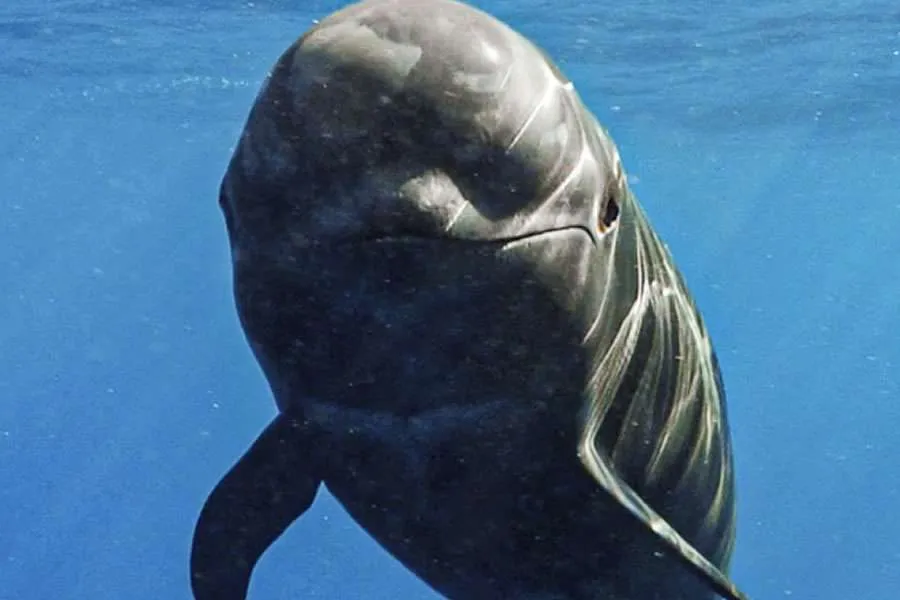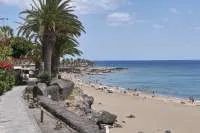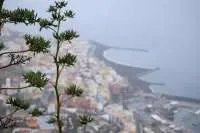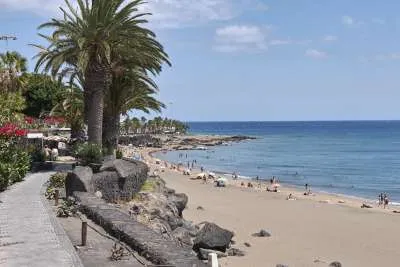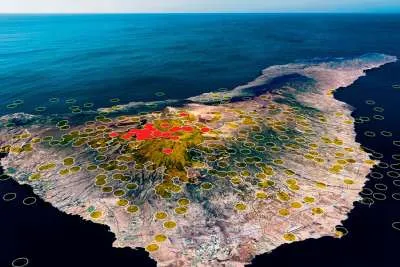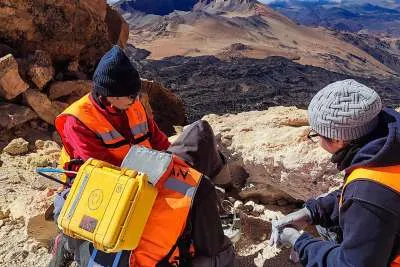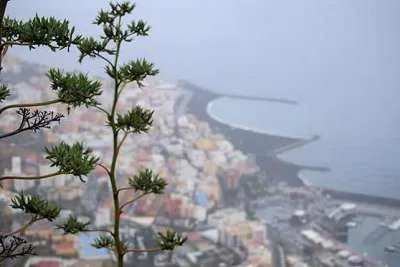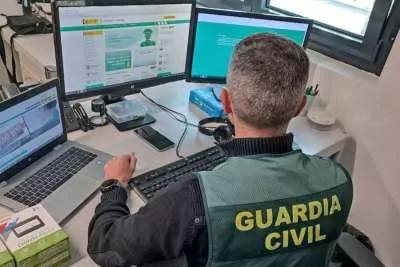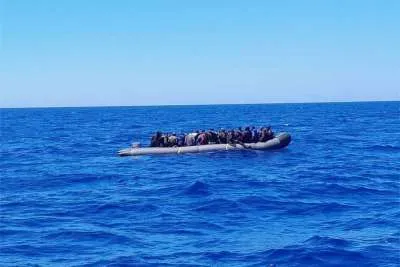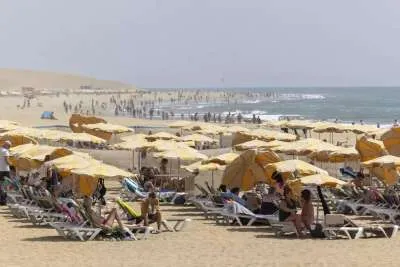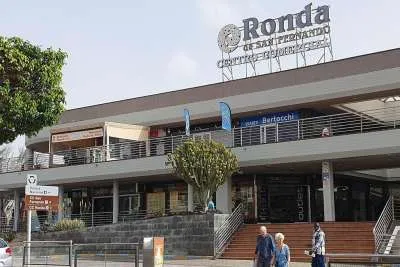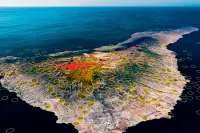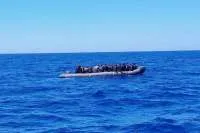‘Nika, the Tropical Pilot Whale’: Film showcases the threats facing Canary Islands waters
- 10-11-2025
- National
- Canarian Weekly
- Photo Credit: Felipe Ravina
The breathtaking beauty and growing destruction of the Canary Islands have captivated audiences across Europe thanks to Nika, el calderón tropical (Nika, the Tropical Pilot Whale), a documentary by Felipe Ravina and José Hernández that has just closed the latest edition of the International Ocean Film Tour, Europe’s leading festival dedicated to the oceans.
After touring dozens of European cities, the festival ended this weekend in Lanzarote, where hundreds of people saw the film. For Ravina, the most important outcome is that “the message reached the people who visit us. We who live here already know the reality, it’s the visitors who need to understand it.”
The story of Nika and her threatened home
Nika is a young female short-finned pilot whale, part of the world’s largest resident population of this species, which lives in the Teno-Rasca Marine Protected Area off the south-west coast of Tenerife. Around 400 whales inhabit this unique stretch of ocean, which also shelters 20 other species of dolphins and whales, as well as endangered animals like the green turtle and the loggerhead turtle.
Despite being officially protected, the area suffers from intense tourist pressure. Jet skis, tour boats and private yachts often operate without proper control, disturbing the animals. “Every time we go out to film, the chaos is incredible,” explains Ravina. “There’s only one patrol boat, and it wasn’t even built for this job, it was meant for collecting rubbish. The crew do their best, but there simply aren’t enough resources for the level of activity here.”
As a result, the whales are under constant stress. “When a baby is feeding and a boat comes too close, it stops. When a female is ready to mate and a group of jet skis arrives, she stops. Imagine a chainsaw running above your house all day, that’s what it’s like for them,” he says.
A message that’s resonating across Europe
The documentary shows both the beauty of the ocean and the destruction caused by overdevelopment. The version screened at the festival, which had its final showing at Jameos del Agua in Lanzarote, is a shorter edit, but a longer version will soon be made available online so that “everyone can watch it and learn what’s happening in the Canary Islands.”
Ravina, who is from Tenerife, is also working on a new underwater video academy, which he plans to open soon to help educate future generations of divers and filmmakers.
“I want people to see both sides, the beauty and the damage,” he says. “If people don’t see how special this place is, they won’t fight to protect it.”
Activism beyond the screen
Ravina has become one of the most recognisable voices in the fight to protect the Canary Islands’ natural environment. In recent months, he has drawn public attention to the controversial Cuna del Alma luxury development in El Puertito de Adeje, one of Tenerife’s last unspoilt coastal areas.
A new protest against the project is planned for Sunday 16th November at midday on Avenida Playa Paraíso. “If people come together, we can achieve big things,” he insists. “This isn’t just a protest against one project, it’s against corruption and the impunity of those destroying Tenerife and the Canary Islands with no consequences.”
He claims that the developers are now struggling to sell the planned villas, partly because of “the bad publicity, the corruption scandals, and the massive social opposition.”
Ravina also says that speaking out comes at a price: “When you challenge the people profiting from destruction, they fight back, using media, politics, even fake online accounts to discredit activists and protests.”
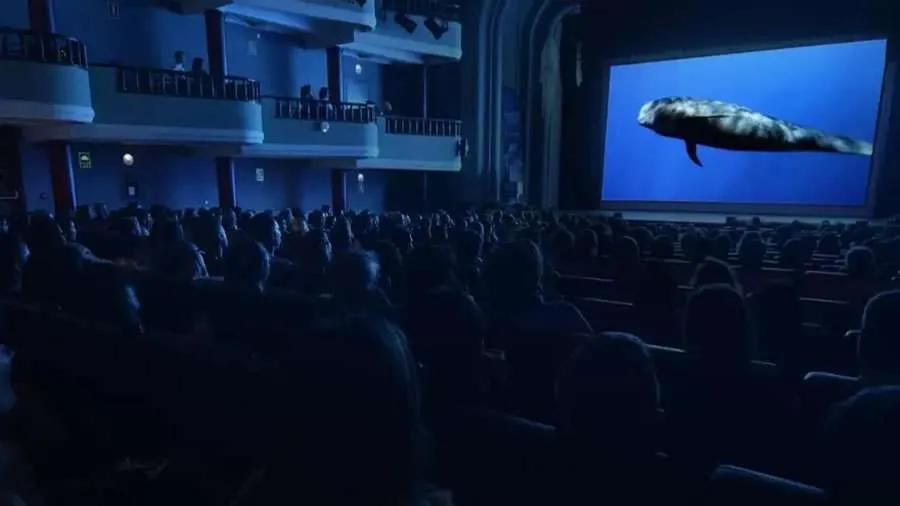
A call for marine reserves and protection
Among Ravina’s main proposals is the creation of more marine reserves. The Canary Islands currently have only three protected marine zones, one around El Hierro and two near La Graciosa, and all are primarily managed for fishing.
“In Tenerife and Gran Canaria, where overfishing is worst, there isn’t a single area where fishing is banned,” he explains. “Unless we let the sea breathe and create no-fishing zones, we’ll never recover what we’ve lost.”
He points out that fish populations have fallen by 90% in just 60 years, and that protecting the ocean would benefit everyone, residents, fishermen and tourists alike. “We’re islanders, and if our sea is polluted and lifeless, it affects our well-being. Swimming in a healthy ocean is not the same as swimming in an underwater desert,” he concludes.
Other articles that may interest you...
Trending
Most Read Articles
Featured Videos
TributoFest: Michael Buble promo 14.02.2026
- 30-01-2026
TEAs 2025 Highlights
- 17-11-2025


